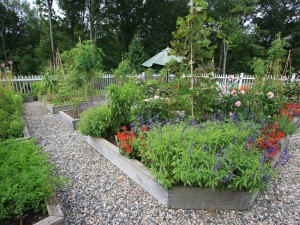Steps To Maintain A Garden

Without proper maintenance, even the most beautiful things lose their radiance. Whether you maintain a garden for beautification purposes or as a source of nutrition, the aesthetic value alone you derive from your green project cannot be over-emphasized. Without constant care, you cannot realistically expect to maintain this beautiful garden you have grown and developed. Right within this article, we have compiled a few steps to take in order to maintain a healthy garden.
Instructions
-
1
Examine All Plants
Many people buy already affected plants when it’s usually too late upon finding out. The most important thing to do before taking home with you any purchased plants, is to watch-out for the plants state of health. There are various determinant factors like, the plant’s root, leaf color and so on, to help you know the health status of the plants you are looking to buy. However, if you can’t be too sure of how healthy they are, then we recommend you seek the assistance of an agriculturist, that way, you can be sure you are making the best decision.
-
2
Water Properly
Watering your garden is a good thing, but since many diseases need water just as much as plants do, how you go about it makes the difference. Many pathogens in the soil and in the air need water to survive. To avoid this, one has to avoid giving this disease an environment that they love. Choose watering methods that limit moisture on a plant’s foliage. Soaker house and drip irrigation can get the job done for you. Preferably, if you are watering by hand; hold the leaves out of the stem as you water the root. By so doing, it limits the proliferation of pathogens through watering.
-
3
Apply Appropriate Fertilizer
You need to be very careful when applying fertilizers in plants, since too much fertilizer can burn the root, thus reducing their ability to absorb water. This makes the plants suffer from nutrient, and can be seriously affected. Get a soil test through your local extension agency that will provide you accurate information of the nutrient level of the soil. Without it, feeding your plant is likely to result in too much of nutrient or none at all. -
4
Quickly Dispose Of Dead Plants and Weeds
Weeds are a problem in and of themselves; they also harbor insects and diseases. If you weed regularly, particularly at the beginning of the growing season, it becomes very easy to keep weeds far from your garden. Also get rid of rotting vegetables such as leaves and unwanted plants. By so doing, dying vegetables won’t be used as an avenue for the pathogens to dwell. -
5
Monitor the Plants For Disease
One of the most bewildering things that can happen in your garden is when your plants get diseases. And even more baffling, tracing their source is almost a mission impossible. Whether it’s a cottage, container or flower garden, anytime they are being attacked by pathogens, automatically, they resist growth, become untidy and slowly die out. By now, you must be well weary of trying everything in your power to maintain your garden, but haven’t caught a breakthrough yet. Instead of giving up and watching your garden slowly be killed by all sorts of diseases, consider putting into practice the best defense mechanism to be used against such diseases on a frequent basis


